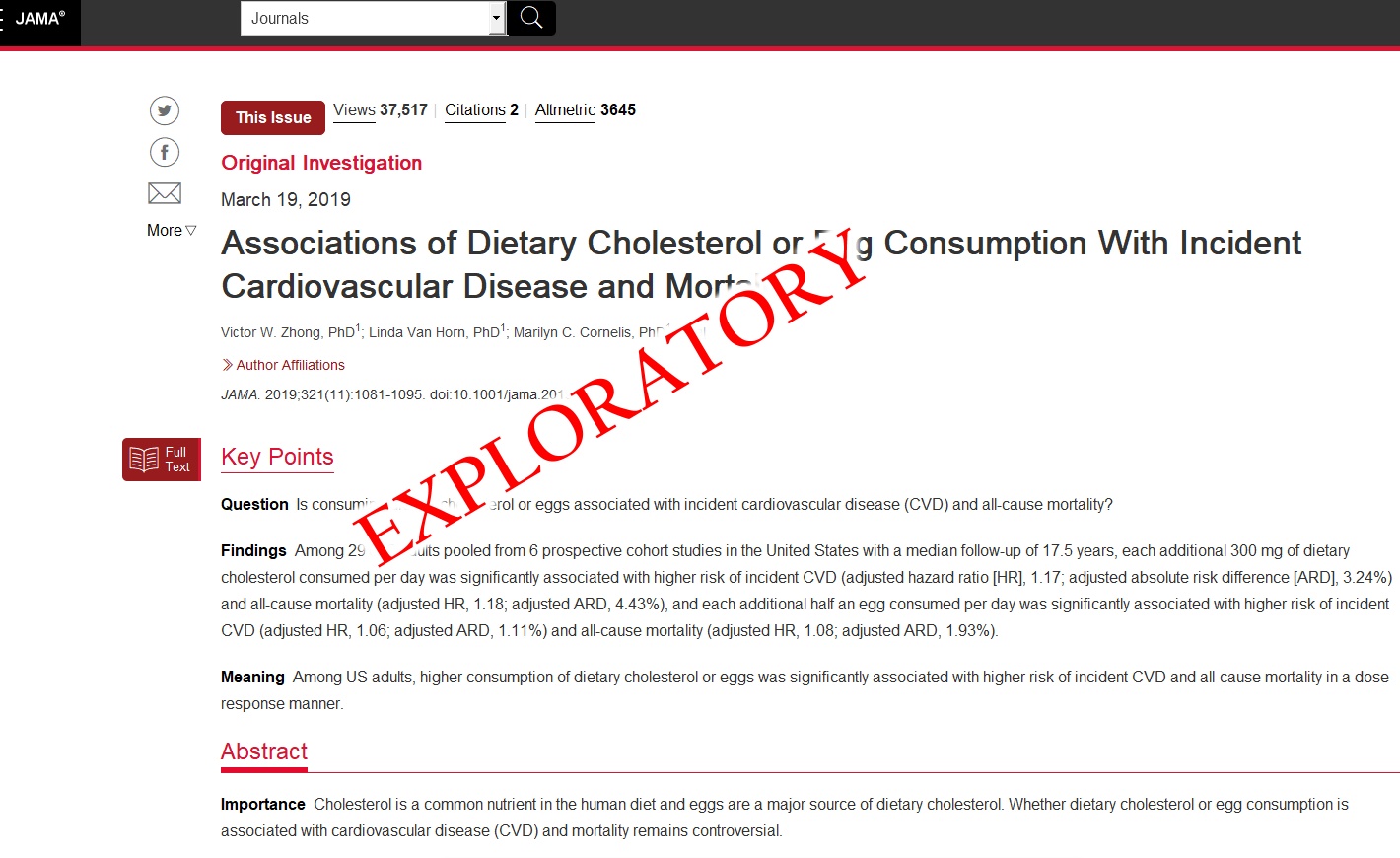The epidemiology paper believes that is due to the cholesterol.
This statistical correlation is in defiance of recent studies of eggs but in line with the accordion of food claims made by nutritionists and epidemiologists, which go back and forth correlating products to benefit or harm. Due to eggs recently being back on the health food side of the scale, egg consumption has gone up, from an average of 254 eggs per year in 2012 to 279 eggs in 2017, according to the U.S. Department of Agriculture. That's a good time to get media attention saying they will cause heart disease and early death, especially when the Journal of the American Medical Association promotes it.

Statistically, every 300 milligrams of cholesterol beyond a baseline of 300 (so, 600, which would be three eggs) was correlated to a 17 percent higher risk of cardiovascular disease and an 18 percent higher risk of death. This study is exploratory but if you read non-science media they will state it as science. There could be numerous confounders causing the health issues that lead to earlier deaths and the paper acknowledges eggs have nutrients beneficial to eye and bone health.
Will this cause the tide swing back toward eggs being the cause of high cholesterol rather than saturated fat? It's unclear. Government loves to create one-size-fits-all guidelines, like people should not eat more than 300 milligrams per day, even though population recommendations don't do much to help individuals. If a broad cap is the goal, it won't be better to eat steak or dairy products so you might as well stick with the 1.5 eggs.

But if you are eating a three egg omelet with cheese every day and then a steak at night, and you don't have fitness levels that can metabolize it well, you are asking for health problems. Statistical correlation is fine for presenting information for further study but some common sense and balance in diets work best in making sure you won't be a statistic before your time.






Comments